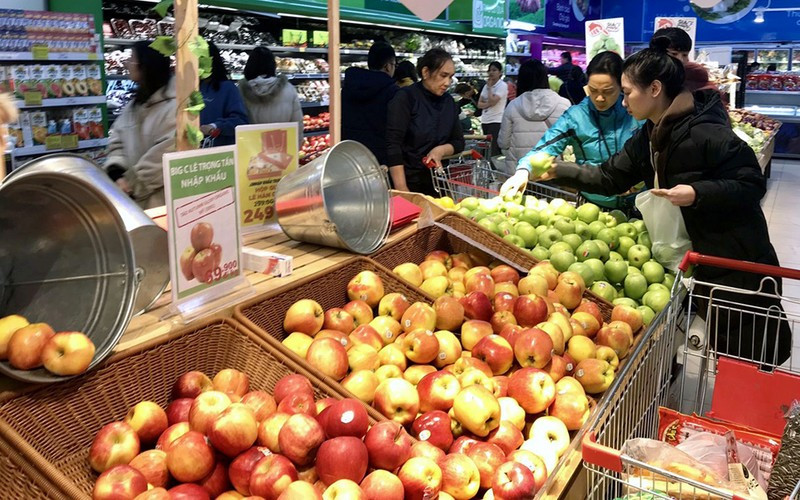After many years of setting, and successfully realising, the inflation control target at 4%, the National Assembly decided to increase the inflation target for 2023 to 4.5%, demonstrating that the economy is facing great inflationary pressure.
In addition to the request to enhance price management and regulation during the Lunar New Year (Tet), the National Steering Committee on Price Regulation has asked ministries, local authorities and relevant agencies to cautiously manage the prices of goods regulated by the government in the first months of the year to provide safe room for controlling inflation in all of 2023.
In fact, adjusting the prices of goods regulated by the government, especially electricity, healthcare services, and education, will have a strong effect on the consumer price index (CPI). According to the General Statistics Office (GSO), education and healthcare account for nearly 12% of the basket of goods and services used to calculate inflation. Therefore, adjusting tuition fees and healthcare costs as planned this year will affect Vietnam’s overall CPI.
In November 2022, the CPI rose by 4.37% over the same period in 2021, which was the highest increase since 2014 (except for 2016, when the rise was 4.52%), mainly due to several localities hiking tuition fees, causing the education index to go up by nearly 11%. For electricity, a 10% rise in prices will result in a 0.33% increase in CPI.
According to Nguyen Thu Oanh, Head of the GSO’s price statistics department, since production and business activities have returned to normal, the operation will have to follow market rules and the period of price restraint on government-regulated goods is coming to an end. Therefore, tuition fees, medical costs and electricity prices will increase, causing great pressure on inflation. In the face of present inflation risks, it is necessary to take bold actions from the first months of the year in order to keep inflation at about 4.5%.
Economic experts have identified several factors weighing on prices in 2023. Externally, global inflation is expected to decline after peaking in 2022 but will remain high, continuing to be the greatest risk for many economies, including in Vietnam. China’s lifting of zero-Covid policies will increase the demand for production materials, consumer goods and services, pushing prices higher in the world and causing pressure on global inflation. In addition, as Vietnam is a big importer of many inputs for manufacturing, higher prices of raw materials will result in higher costs and prices of final goods, causing inflation pressure on the economy.
Domestically, a number of tax support policies, such as VAT reduction, expired at the start of 2023, causing the prices of goods to rise again. Price rises are also expected with the increase in salary from July 2023. Furthermore, the demand-pull pressure from growth stimulus packages will push up prices and build up pressure on inflation.
However, there are also a number of factors that can help restrain price rises. The biggest factor is Vietnam’s abundant supply of foods to meet domestic demand and for export. The 50% cut in the environmental protection tax on fuels will help curtail the rise in the retail prices of this important goods.
Based on the actual developments, the Ministry of Finance has constructed three scenarios for inflation in 2023, with respective CPI rises of 4.2%, 4.55% and 4.98%. These scenarios are based on the projected increases of government-regulated goods in the third and fourth quarters, with respective electricity price rises of 5%, 7% and 8%.
Forecasts by some domestic organisations that have included more positive data on global inflation show that Vietnam’s inflation pressure in 2023 may cool down, with the CPI averaging at 3.2-3.5%.
According to Associate Professor Ngo Tri Long, the advantages from effectively curbing inflation in 2022 provide the opportunity for Vietnam to continue maintaining relatively low inflation compared to other economies. However, in face of the potential risks, we must not be complacent in the task of price management and regulation.
















